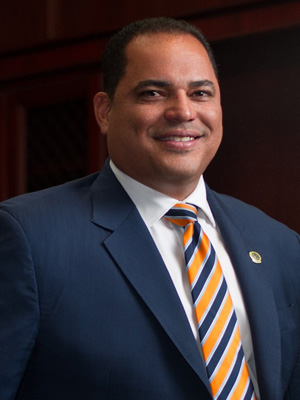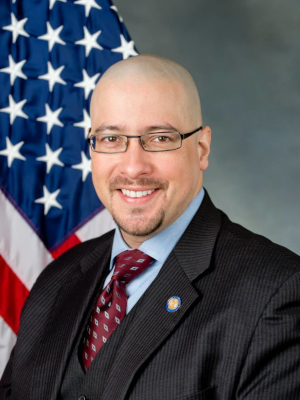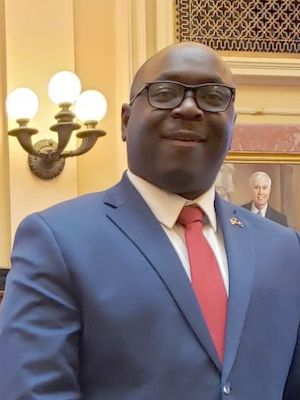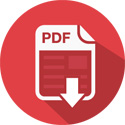2024-14
State-Managed Essential Medicines Virtual Reserve Inventory
Sponsored by
Rep. Johanna López (FL), Sen. Carmelo Ríos Santiago (PR)
Sen. Gustavo Rivera (NY) and Del. Aijalon Cordoza (VA)
Reported to the Caucus by the NHCSL Healthcare Task Force
Rep. Alma Hernández (AZ), Chair
Unanimously ratified by the Caucus on November 23, 2024
I. Those with Chronic Health Conditions and Facing Health Disparities are Disproportionately Affected by Drug Shortages
WHEREAS, Hispanic Americans disproportionately face barriers to healthcare as a result of historic and systemic racism, as this Caucus highlighted in Resolution No. 2020-03, Declaring Institutional Racism a Public Health Crisis; and,
WHEREAS, this has caused certain minority populations, including Hispanics, to disproportionately live further away from accessible care, often in a designated Health Professional Shortage Area (HPSA), resulting in difficulty engaging with the healthcare system;[1] and,
WHEREAS, limited access to healthcare over time has led to Hispanic Americans experiencing more than twice as high uninsured rates as compared to their non-Hispanic white counterparts including lower health literacy, and a distrust of the healthcare system due to inadequate and negative experiences; and,
WHEREAS, Hispanic Americans experience higher rates of some chronic diseases compared to non-Hispanic whites, including a higher rate of diabetes,[2] chronic liver disease[3] and HIV,[4] and Puerto Ricans have one of the highest rates of asthma of any racial or ethnic group;[5] and,
WHEREAS, properly managing a chronic disease can be exacerbated due to a lack of healthcare and medication adherence, as this Caucus highlighted in Resolution No. 2017-01, Support of State and Federal Policies to Improve Medication Adherence; and,
WHEREAS, Hispanic Americans are more likely to be in pharmacy deserts, and pharmacy deserts are more likely to be in low-income Hispanic neighborhoods than in low-income non-Hispanic white neighborhoods, resulting in difficulty filling prescriptions and remaining adherent to a prescription regimen;[6] and,
II. Natural Disaster Drug Shortage Prevention is Essential
WHEREAS, natural disasters and severe weather incidents disproportionately impact areas that already face major barriers to care, severely impacting access to necessary medications and medical supplies for the continuing treatment of chronic diseases and treatment of injured persons; and,
WHEREAS, the COVID-19 pandemic and subsequent drug shortages demonstrated the need for state essential medicines buffer inventory, and the importance of improving state buffer stock management throughout the United States, specifically in the event of a crisis; and,
WHEREAS, there is unclear statutory authority regarding shortages which creates difficulties in management during crisis and the development of sustainable funding mechanisms; and,
WHEREAS, state-managed essential medicines reserves have a stronger ability of ensuring equitable access than provider-managed buffer stock, as they can incorporate the appropriate equity plans into distribution processes rather than focusing solely on serving their own patients and communities; and,
WHEREAS, previous strategic national essential medicine reserve attempts have not consistently included lower resourced, urban and rural local health departments, safety-net hospitals and community organizations to develop effective distribution of medical countermeasures to ensure essential medicine buffer inventory needs are tailored for emergency preparedness strategies to serve these diverse communities, all of which are essential components of disparity reduction, as this Caucus underscored in Resolution No. 2020-06, Equity Plan for Affordable Healthcare; and,
WHEREAS, state-managed essential medicine reserves can be a factor in helping ensure there is an equitable approach for vulnerable regions, communities, and facilities serving Hispanic populations and other communities of color who are medically underserved to have access to medications and medical supplies in case of a natural disaster or public health emergency; and,
WHEREAS, compared to traditional buffer stock endeavors, one option for consideration should be virtually sequestered buffer stock managed by a distribution vendor which allows distribution centers to reserve medications in a manner that protects against expiration of products physically warehoused and managed by the State; and,
WHEREAS, a virtually sequestered product state essential medicine reserve protects against natural disasters directly impacting the physical site of a state essential medicine buffer inventory or warehouse.
THEREFORE, BE IT RESOLVED, that the National Hispanic Caucus of State Legislators (NHCSL) supports legislation that creates or supports state-managed buffer stock of essential medicines for emergency use, with equity as its guiding principle; and,
BE IT FURTHER RESOLVED, that such state essential medicine buffer inventories should be available and deployed in the case of natural disaster, emergency declaration, or major public health event when needed to equitably address the needs of all residents of the state, prioritizing those that are most impacted by the triggering event and least able to secure necessary medicines via other means; and,
BE IT FURTHER RESOLVED, that in order to safeguard the public treasury, states should consider a virtually sequestered buffer stock managed by a distribution vendor which allows distribution centers to reserve medications in a manner that protects against expiration of products physically warehoused and managed by the State; and,
BE IT FINALLY RESOLVED, that medicines included in such state-managed buffer stocks should be those for which interruption of a prescribed treatment regimen would be the most impactful to the patient in addition to medications most commonly needed for direct crisis response.
THE NHCSL HEALTHCARE TASK FORCE, IN ITS MEETING OF OCTOBER 9, 2024, UNANIMOUSLY RECOMMENDED THIS RESOLUTION TO THE EXECUTIVE COMMITTEE FOR APPROVAL. THE EXECUTIVE COMMITTEE UNANIMOUSLY APPROVED THIS RESOLUTION AT ITS MEETING OF OCTOBER 18, 2024.
THE NATIONAL HISPANIC CAUCUS OF STATE LEGISLATORS UNANIMOUSLY RATIFIED THIS RESOLUTION AT ITS ANNUAL MEETING OF NOVEMBER 23, 2024 IN DENVER, COLORADO.
[1] As of October 7, 2024, approximately 76 million people live in a primary care Health Professional
Shortage Area (HPSA), and 59 million people live in a dental health HPSA. A total of 123 million people, over a third of the United States, live in a mental health HPSA. See United States Department of Health and Human Services, Health Resources and Services Administration. Health workforce
shortage areas – dashboard. https://data.hrsa.gov/topics/health-workforce/shortage-areas.
[2] According to one CDC-cited source (the 2017–March 2020 National Health and Nutrition Examination Survey) the diagnosis rate is the same (11.1% vs 11%), but an additional higher percentage of Hispanics is undiagnosed (4.4% vs 2.7% for non-Hispanic whites). According to another CDC-cited source (National Center for Health Statistics; 2019–2021 National Health Interview Survey) the diagnosis rate is 8.5% for non-Hispanic whites and 10.3% for Hispanics with higher rates among, Puerto Ricans (13.3%), Mexicans or Mexican Americans (11.1%), Dominicans (9.4%) and Cubans (9%). See CDC, National Diabetes Statistics Report (May 15, 2024).
[3] HHS Office of Minority Health, Chronic Liver Disease and Hispanic Americans (Sept. 25, 2024).
[4] HHS Office of Minority Health, HIV/AIDS and Hispanic Americans (Sept. 25, 2024).
[5] American Lung Association, Current Asthma Demographics (June 13, 2024).
[6] Aaron Gregg and Jaclyn Peiser, Drugstore closures are leaving millions without easy access to a pharmacy (The Washington Post, Oct 22, 2023) (Pharmacies are leaving low-income and majority Black and Latinx neighborhoods and expanding in predominantly White and middle- to higher-income areas.). Murphy T, Pananjady K. As pharmacies shutter, some Western states, Black and Latino communities are left behind. (Associated Press. June 3, 2024.)





